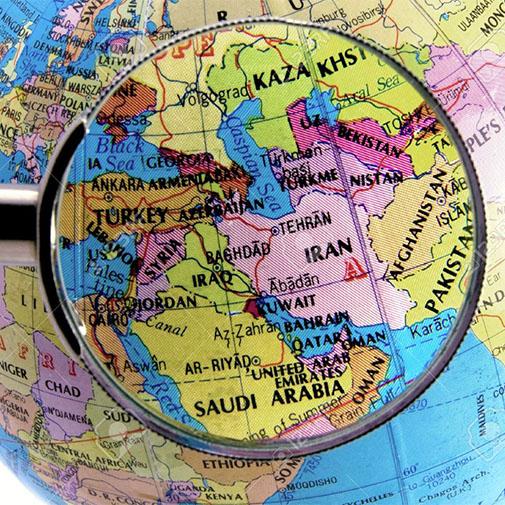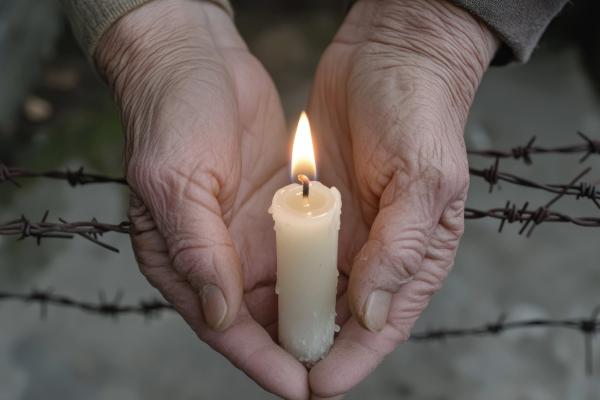One thing about the Middle East: it’s never boring.
Two new developments impacting the region have dominated the news during the past week.
1. Hamas and Fatah, once bitter rivals, have reconciled
Negotiators from Palestinian rivals Hamas and Fatah signed a reconciliation deal last week, ending their bitter, decade-long split.
Following talks mediated by Egyptian diplomats in Cairo, the two groups signed the agreement, which will give the Fatah-controlled Palestinian Authority full governing power over the Hamas-ruled Gaza Strip by December 1, The Times of Israel has reported.
The two Palestinian factions have been quarreling for 10 years, since Hamas seized Gaza from Fatah in a violent coup in 2007.
The next step, reports The Times, is likely to be formation of a government that will unite the various Palestinian political movements. Those negotiations are expected to take place at a follow-up meeting in Cairo on November 21.
The disarming of Hamas is a key issue yet to be resolved.
Hamas is not prepared to disarm, according to reports from Egypt broadcast by Israel Radio. The reports indicate that the Islamic terrorist group has instead agreed not to use its weaponry without approval from a joint panel.
The “Big Unknown”
With the fate of Hamas’ vast, 25,000-troop military force unknown – and in light of the failure of many previous attempts at reconciliation – observers worldwide are viewing this latest reunion with caution.
Reconciliation could make an Israeli-Palestinian peace deal more difficult. Hamas does not recognize Israel and has vowed its destruction, while the Palestinian Liberation Organization, led by PA President Mahmoud Abbas, takes a more moderate approach regarding Israel.
Hamas is blacklisted as a terrorist organization by Israel, the United States and the European Union, and that’s unlikely to change. It has fought three wars with Israel since 2008, even as conditions in the blockaded Gaza Strip have deteriorated from a scarcity of electricity, water, medical care and food.
Faced with increasing isolation and frustrated Palestinian citizens, Hamas was forced to seek help from Egypt, which has agreed to provide fuel to the Gaza Strip. In turn, Egypt has pressed Hamas to move forward on reconciliation with Fatah.
2. The U.S. will withdraw from UNESCO
The United States announced late last week it is withdrawing from the United Nations Scientific and Cultural Organization (UNESCO).
The decision came down to financial considerations, the need for reform and the organization’s “continuing anti-Israel bias,” said State Department spokeswoman Heather Nauert in The Times of Israel.
The withdrawal will take effect on December 31, 2018.
According to a report in Foreign Policy magazine, cited by The Times late last week, U.S. Secretary of State Rex Tillerson made the decision to withdraw several weeks ago, but has agreed to remain in the organization until a new director-general is elected in the coming weeks.
U.S. officials have not decided how to address the mounting unpaid dues owed to the organization. America suspended its funding of UNESCO when the organization granted full membership to Palestine in 2011.
Many saw the vote to include Palestine as proof of long-running, ingrained anti-Israel bias within the United Nations, where Israel and its allies are far outnumbered by Arab countries and their supporters.
Israel follows suit
Hours after the U.S. announcement, Israel said it plans to leave the organization as well, The Jerusalem Post reported.
In a statement issued by his office, Prime Minister Benjamin Netanyahu called America’s move a “brave and moral decision, because UNESCO has become a theater of the absurd.”
Israel’s Ambassador to the U.N., Danny Danon, said UNESCO has become a forum for Israel-bashing and has forgotten its original purpose. It is now “paying the price” for the “shameful” decisions it has adopted against Israel, he said, adding, “A new era is dawning” at the UN in which “anti-Israel discrimination” will carry consequences.
Israeli officials have charged the U.N. with passing one-sided resolutions that obsessively target Israel.
In 2016, UNESCO’s Executive Board passed two resolutions ignoring Jewish ties to the Temple Mount and one in 2017 that disavowed Israel’s sovereignty in Jerusalem. Over the summer, UNESCO’s World Heritage Committee declared the Cave of the Patriarchs and Hebron’s Old City as endangered Palestinian sites.
What do these developments mean to us as supporters of Israel and her people?
America, always a staunch ally of the Jewish state, has said of the U.N.’s anti-Israel bias, “enough is enough.”
We’ll have to wait and see how things play out. Rest assured, Jewish Voice will keep you informed.
In the meantime, keep praying for Israel and her people. Please pray for us at Jewish Voice also. We are thankful to be on the same team with you, caring for and supporting Jewish people – in the Middle East and throughout the world.
Your partnership with us means so much as you help us stand with Israel and take compassionate humanitarian aid to Jewish people in need.
As a token of our appreciation for your gift of $35 or more today, we’ll send you a meaningful piece of artwork. The Soldier at the Wall statue depicts an Israeli soldier – a defender of Israel – praying to the One who is the tiny nation’s ultimate protection.












